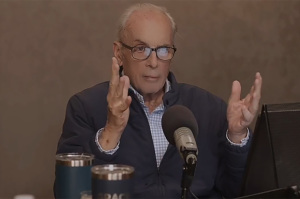Common Core Supporter: Schools Should Have National Curriculum
The founder of Core Knowledge Foundation, E. D. Hirsch, argues that the Common Core State Standards Initiative has proven to be effective but they do not go far enough, and school kids should have a national curriculum, in response to an earlier CP interview with an early childhood education expert.
In a March 7 interview with The Christian Post, Dr. Nancy Carlsson-Paige, an expert on early childhood education, complained that no early childhood experts were consulted in the development of the Common Core, and the standards are harmful because they fail to take into account that students develop at different rates and they encourage teachers to engage in direct instruction rather than hands-on, active learning and play instruction. Carlsson-Paige was one of over 500 early childhood experts who signed a petition in 2010 warning that the Common Core would be harmful to young children.
E. D. Hirsch is a retired professor of education and humanities at the University of Virginia and the founder and chairman of the Core Knowledge Foundation, which develops curriculum based upon the Common Core. After publishing the interview with Carlsson-Paige, Core Knowledge Foundation contacted The Christian Post to request an opportunity to respond to Carlsson-Paige's claims.
Hirsch told CP on Tuesday that Core Knowledge Foundation has been field testing the Common Core standards in New York City for three years and those tests show that the Common Core will be successful.
"It's obvious to the observer that the kids love what they are learning and are enthusiastic about what they are learning," Hirsch said.
Carlsson-Paige complained about teachers being evaluated based upon student test scores that are tied to the Common Core. Hirsch said he is in agreement with Carlsson-Paige on that point.
"I'm with her there. ... I'm in agreement on the test orientations of the schools. I don't like the kinds of tests that are being given," Hirsch said.
He added that the testing taking place in schools are not related to the Common Core, but "this is how the schools are operating now."
The Common Core is a set of standards, or benchmarks, not a curriculum. Hirsch believes, though, that the United States should have a national curriculum for all school kids.
Standards are a "weasley word," Hirsch complained, that "will cover any number of curricula."
The reason to have a national curriculum, Hirsch said, is due to "the need for a sense of national community" and "to encourage a national communitarian spirit, a general patriotism."
The U.S. Founders and 19th century school reformers wanted a national curriculum for the same reasons, Hirsch added.
Another complaint about the Common Core was the manner in which it has been implemented. It was sold as a bottom-up, state-led initiative, but in reality, the opposite is true. It was thrust upon the states by a small cadre of elites. The Common Core was developed by the National Governors Association, a private organization, and was then tied to Race to the Top funding. States were required to adopt the Common Core in order to compete for Race to the Top funds, before they even knew what the Common Core standards would be.
"That was a political mistake for sure," Hirsch said, adding that "there would have been objections to the process" regardless.





























